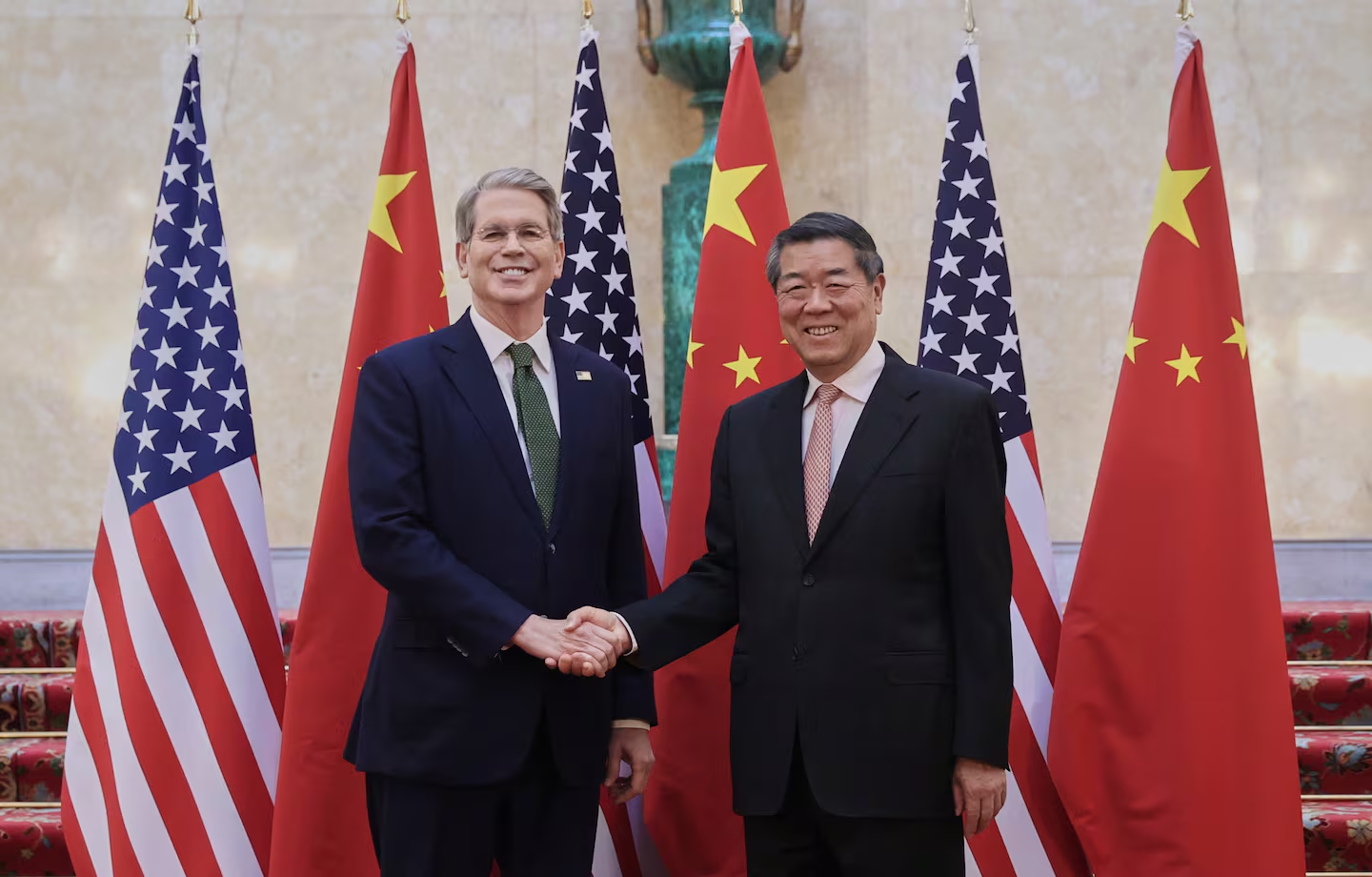Second Day of Negotiations in London
Trade representatives from the United States and China entered their second day of high-level discussions at Lancaster House, a historic venue in central London. The talks are being closely observed by global markets as the world’s two largest economies attempt to resolve ongoing tariff and trade tensions.
Leading the U.S. delegation are Commerce Secretary Howard Lutnick, Treasury Secretary Scott Bessent, and Trade Representative Jamieson Greer. Representing China is Vice Premier He Lifeng, who oversees Beijing’s economic strategy.
President Trump told reporters he was receiving “good reports” from the negotiating team and expressed optimism about the ongoing discussions.
Focus on Rare Earth Exports and Semiconductor Controls
Central to the current round of negotiations are rare earth minerals, essential for electric vehicles, defense, and clean energy. China has significantly cut exports of these critical resources, creating supply chain risks for U.S. manufacturers.
Meanwhile, the U.S. has imposed new restrictions on exports of semiconductor design tools and chipmaking technology, citing national security. Negotiators are also pushing for increased Chinese purchases of American products and a reduction in the longstanding trade imbalance.
Geneva Truce and Recent Trade Shifts
This meeting follows a 90-day pause in tariff escalations agreed in Geneva, where both nations committed to temporarily lowering tariffs. U.S. rates were adjusted to 30%, while China lowered its base rates to 10%. However, tensions resurfaced, with each side accusing the other of violating that initial agreement.
Beijing has since further restricted exports of refined rare earth elements, where it maintains a global near-monopoly. The U.S. team hopes to establish a “green channel” for access to these materials, though China has cited its own “sustainable development needs” for the controls.
Tech Policy and Visas in the Spotlight
The talks also address recent U.S. actions to restrict Chinese access to advanced chip technologies, including the revocation of some student visas related to research fields. The measures have drawn concern from international education and innovation sectors.
While both sides are engaging on these issues, progress remains uncertain. Analysts warn that deeper concessions are unlikely in this round and that tariff reductions may be off the table for now.
Diplomatic Engagement Expands
In a separate London meeting, China’s Commerce Minister Wang Wentao met with the U.K.’s Secretary for Business and Trade to promote multilateral cooperation. The U.K., while hosting the talks, is not a direct participant, though it has emphasized its support for dialogue and free trade principles.
The U.K. is also negotiating its own bilateral trade deal with the U.S., adding further complexity to the current geopolitical context.
What’s Next
Officials have not yet confirmed whether discussions will extend beyond Tuesday, but both teams remain in London. Secretary Lutnick indicated that negotiations were “productive” and could continue as long as necessary.
Stay updated on this evolving story by exploring our Trade & Policy section or reviewing our global economic forecast.







